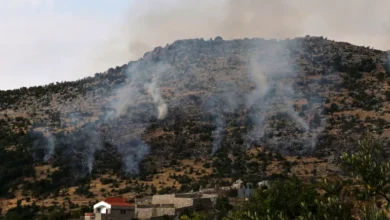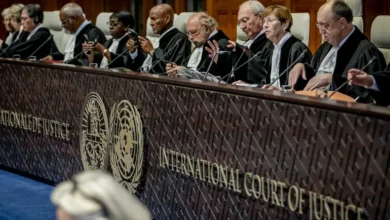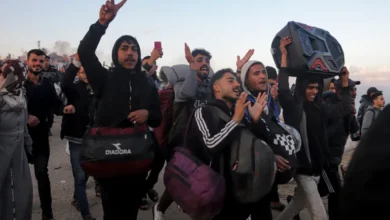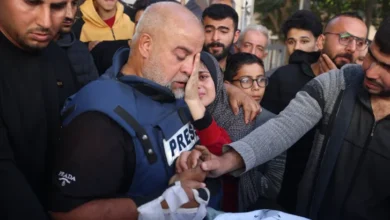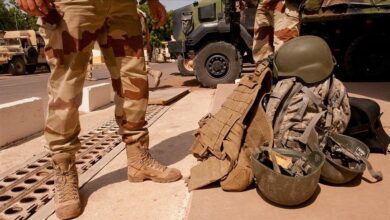As Israel attacks, displaced Lebanese people come together in Beirut
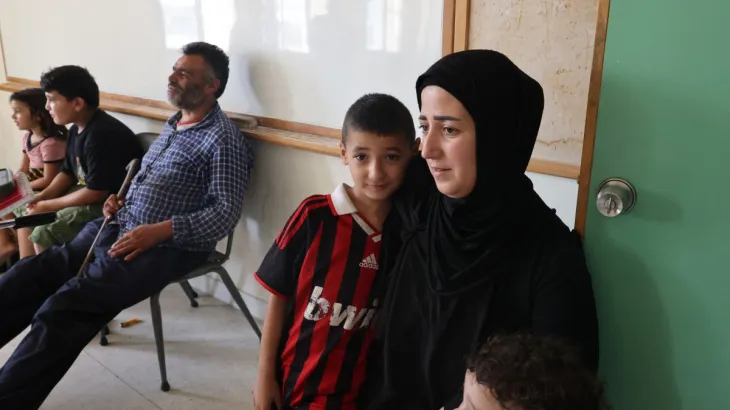
Beirut is filling up, possibly way past its capacity, as thousands of people stream into its neighbourhoods, seeking refuge from Israel’s unpredictable air raids.
The attacks began in the south and the Bekaa, with Beirut’s southern suburbs also sustaining strikes. But then the scope of the attack expanded, targeting: areas in the Chouf and Kesserwen, a predominantly Christian region with a small Shia population.
The uncertainty is almost palpable as exhausted people stream into the Hamra neighbourhood of Beirut on Tuesday, some having been on the road for more than 12 hours to cover a distance that normally takes two.
Finding a room at an inn
At the Casa D’Or, a four-star hotel on Hamra Street, a couple stands at the check-in desk, trying to negotiate the price for the last room available that night – a suite.
Speaking to them is a receptionist who introduces herself as simply, Lama.
Prices have been dropped for Lebanese guests, she adds.
But it does not seem like the couple succeeds in their negotiations – they walk out to stand on the pavement, looking slightly bewildered.
Outside and around the corner, on an unusually busy Makdissi Street, Dr Abbas, a cardiologist, says he has managed to find rooms for himself, his wife and his son – after they had spent 16 hours in the enormous gridlock of traffic coming from the south.
At one point, when they were close to Hamra, the family abandoned their vehicle and trundled their suitcases down the streets, weaving between the cars that they were outpacing on foot.Abbas is from al-Mansouri, near Tyre in southern Lebanon, but his older son is studying medicine at the American University in Beirut, so they decided to come here rather than head for the mountains as they had when Israel attacked in 2006.
They’re not afraid, he says, because they have already been through so much. “We’re used to this, unfortunately,” he says.
His younger son, a teenager, is experiencing his first war, Abbas says. “He’s in training,” the doctor jokes.
The family seems happy to all be in the same city, but they are not immune from the tension gripping the country, or the anger.
“The Israelis are liars,” his wife says dismissively when asked about Israel’s claims that Hezbollah was storing weapons in homes in the south.
They usually work in Hamra, and live in Bir Hassan in the south, a neighbourhood close to Ghobeiry, where Israel was bombing on Tuesday.
They don’t want to go back there tonight, they say, preferring to go find friends in the Shatila Palestinian refugee camp.
“Is it safe here in this neighbourhood?” they ask, a question that is on everyone’s mind, whether they vocalise it or not.
The boys drift off, heading towards Shatila, where they hope they will be safer for the night.
Two women appear, looking slightly out of sorts.
In Hamra, they found rooms at the Mayflower Hotel, but discovered to their dismay that they could not find bread.
Their distress attracts the attention of kind passers-by who join the two ladies’ hunt for bread.
A grocery shop owner says there is none to be had, so the search party heads for a falafel shop to ask if the women can buy plain bread.
The falafel seller apologises – he only has enough for the falafel he will make tonight night.
More people join the search and finally, two different people manage to find bags of bread. Victory.
They refuse to accept the women’s payment for the bread, and the group celebrates that someone has been helped.
Out of nowhere, someone beckons to plastic chairs set up between big flower pots on the pavement and asks the ladies to sit down while someone else sources coffees for them.
They were on the road for 15 hours getting to Beirut, now they need the break and a chance to enjoy other Lebanese people taking care of them. They never give their names.
